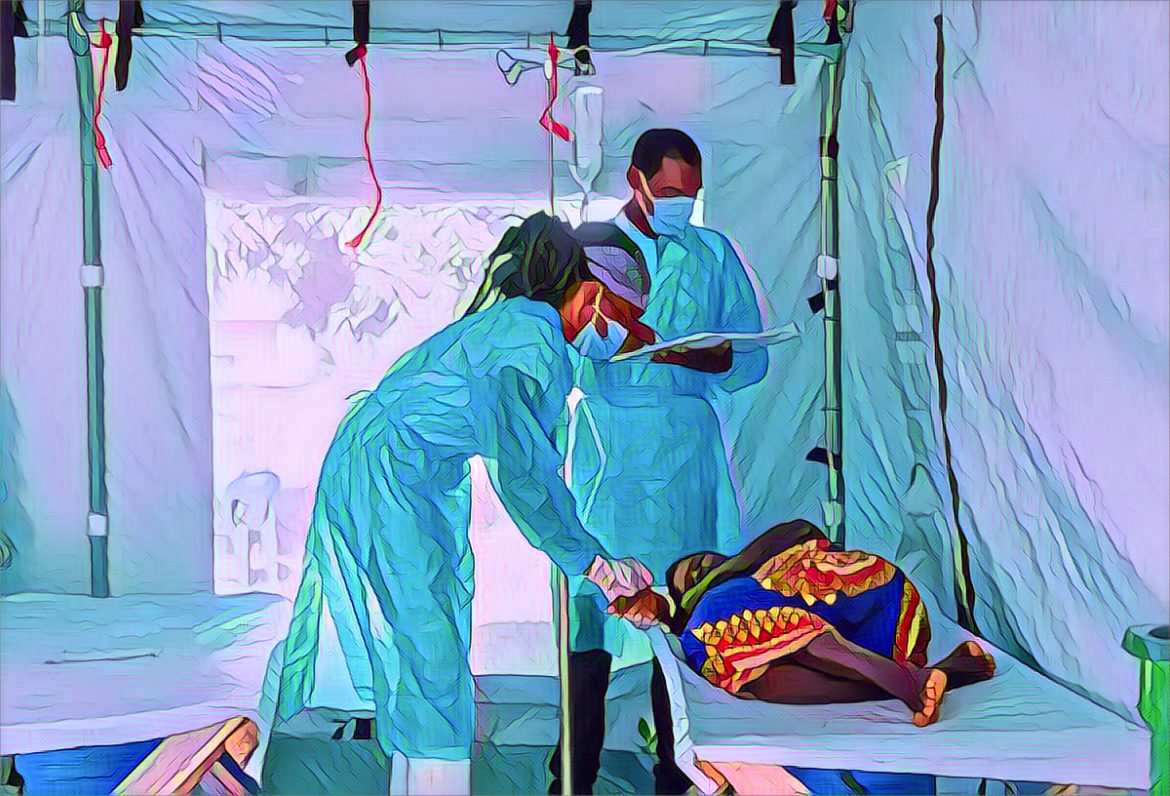The cholera outbreak in Zimbabwe has affected all 10 provinces of the country, with women and children being the most affected by the disease. Poor sanitation and water scarcity, as well as the lack of adequate health services and infrastructure, have driven the outbreak which started in Chegutu in February 2023
Unicef, the UN children’s agency, reported on December 22, 2023 that 12,414 cholera cases, 62 confirmed deaths and 217 suspected deaths have been reported from 54 out of 64 districts. The report also revealed that 51% of the confirmed cholera victims are female, with children under 15 accounting for 36% of cases and 21% of deaths.
Harare and Manicaland Worst Hit
Based on a report by Newsday Zimbabwe, the most affected provinces are Harare and Manicaland, which together account for more than 80% of new infections.
Harare, the capital city, has been struggling with water shortages and sewage overflows for years, creating a conducive environment for the spread of cholera and other waterborne diseases.
The outbreak has hugely affected Manicaland, a rural province, especially in the districts of Mutare and Buhera, where cases have surged in recent weeks.
The province is home to many artisanal miners, who often work in unsafe and unhygienic conditions, exposing themselves and their communities to cholera and other health risks.
Unicef and Partners Respond
Unicef and its partners have been working to contain the outbreak and prevent further transmission by providing safe water, sanitation and hygiene services, as well as cholera treatment and prevention kits, to the affected populations.
They have also been supporting the national and local authorities to strengthen their surveillance, coordination and response capacities, as well as to raise awareness and mobilize communities to adopt preventive behaviors.
Unicef has reached nearly 191,000 people, including over 87,000 children, with safe water since the outbreak began.
The agency has also provided two additional high-performance tents to expand the capacity of cholera treatment facilities at Zvipiripiri and Chiadzwa health centers in Manicaland province.
On December 13, 2023, Unicef and the national Risk Communication and Community Engagement pillar launched a nationwide festive season campaign in Manicaland. During the campaign, they sensitized 200 people in Mutare and Chimanimani districts, including 30 religious leaders and artisanal miners, on key messages about cholera prevention during the festive season
Unicef and its partners have urged the public to remain vigilant and practice good hygiene, such as washing hands with soap and water, boiling or treating drinking water, and seeking medical attention if they experience symptoms of cholera, such as diarrhea and vomiting.
Unicef has also appealed for more funding and support from the international community and donors to sustain and scale up its lifesaving interventions and to protect the most vulnerable groups, especially women and children, from the deadly disease.


